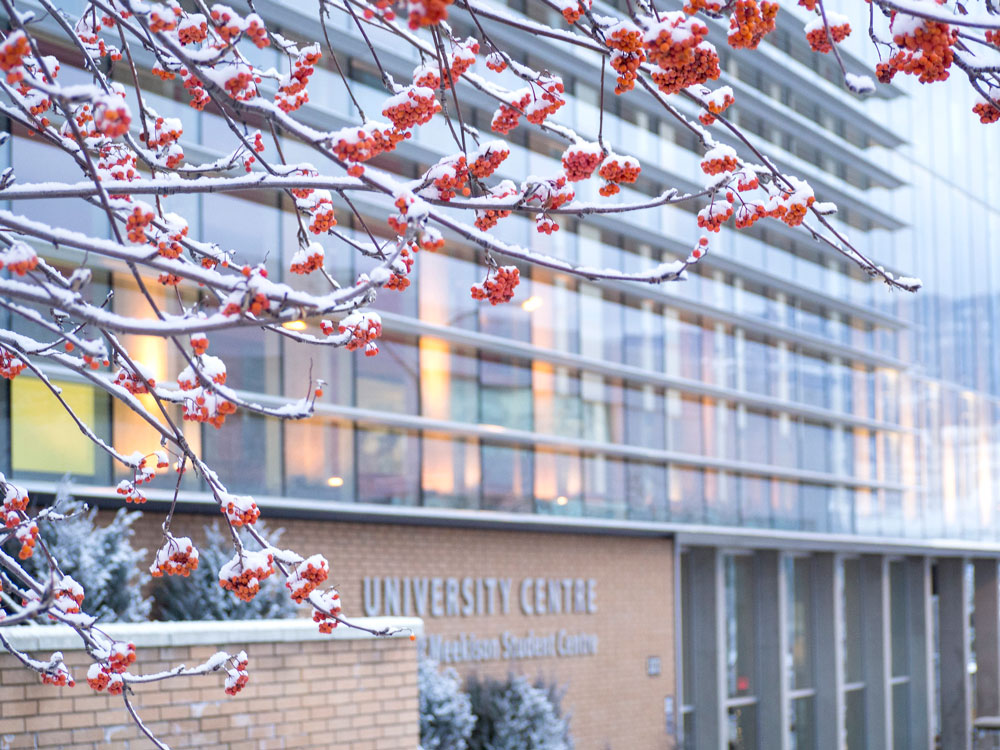Funding to support aging in place and intimate partner violence survivors with brain injuries

Photo credit: Margo Yacheshyn / University Relations
Michael Smith Health Research BC (MSHRBC) has funded two collaborative teams led by UBC Okanagan researchers to co-develop research that will directly impact the health of people in BC.
The funding is part of the MSHRBC’s Convening & Collaborating (C2) competition, which promotes knowledge exchange and meaningful collaboration by supporting researchers and research users to develop research together. This engagement with the people who use research ensures the relevance of the project and builds knowledge translation and skills within BC health research.
One of the successful projects, led by Dr. Paul van Donkelaar, Associate Vice-Principal, Research and Innovation and a professor in the School of Health and Exercise Sciences, focuses on the ethical and legal implications of screening for brain injury (BI) in intimate partner violence (IPV). The project received $15,000 from MSHRBC from the C2 competition.
Recognizing IPV-caused BI is a public health emergency that happens behind closed doors, research from Dr. van Donkelaar’s lab has shown a BI diagnosis has the potential to be weaponized against women in family court proceedings. This project will bring together experts from legal, community and health care-focused agencies to create an action plan to develop training and prevent such weaponization.
Dr. van Donkelaar has partnered with Supporting Survivors of Abuse and Brain Injury through Research (SOAR), a nonprofit initiative he co-founded, and will co-lead the project with its executive director, Karen Mason. They hope this collaborative, community-based project will inform future research and practice and spark system change for better outcomes for survivors.
“We’re incredibly pleased to have been recognized and to have received this funding,” said Dr. van Donkelaar. “It will play a critical role in helping us develop training and raise further awareness of the links between IPV and brain injury, particularly in the legal sector.”
The second successful project also received $15,000, $7,500 of which was funded by the Tai Hung Fai Charitable Foundation and Edwin S. H. Leong Centre for Healthy Aging. The project is led by Dr. Jennifer Jakobi, a professor in Health and Exercise Sciences and co-lead of the Aging in Place Eminence cluster. Working with project co-lead Lee Clark, Director of Health, Native Women’s Association of Canada, Dr. Jakobi will be working alongside Indigenous communities to understand what aging in place means to Indigenous older adults.
The team will be modifying a developed survey and hopes to build on it with partners across Canada to capture the voices of different nations. The project will develop reports jointly with Indigenous communities and share the information through knowledge-exchange events with government, Indigenous leaders and policy makers at the provincial and federal levels.
Ultimately, this team aims to capture Indigenous voices on this important topic and use intentional listening to elevate these voices to shape policies and practices to support aging in place for Indigenous communities.
A total of 11 UBC-led projects were funded across both campuses through the 2023 C2 competition, with an additional 10 UBC-led projects supported through the MSHRBC Reach program for knowledge translation.